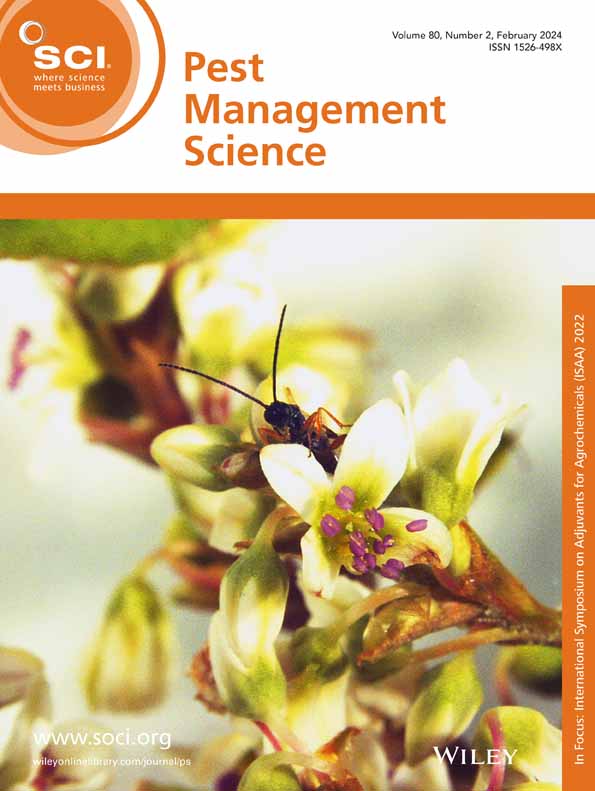Endophytic bacterial engineering: a novel approach for pine wilt disease management in Pinus massoniana.
IF 3.8
1区 农林科学
Q1 AGRONOMY
引用次数: 0
Abstract
BACKGROUND Pine wilt disease (PWD) is a globally devastating forest disease caused by the pine wood nematode (Bursaphelenchus xylophilus). Chemical control plays a role in the prevention and control of PWD, but it also raises concerns regarding environmental safety and drug resistance. Seeking novel strategies and technologies to manage PWD has long been a matter of concern. The aim of this study was to increase the resistance of pine trees to PWD through the application of the transgenic engineered bacterium Pseudomonas koreensis BM06-P60. RESULTS A dominant endophytic bacterium, P. koreensis BM06, was isolated from healthy stems of Pinus massoniana. This strain was capable of efficiently and stably colonizing P. massoniana and significantly promoted the growth of its seedlings. The purified peptidase P60 protein was able to disintegrate the nematode cuticle, damage the intestinal tissues, and exert adverse effects on the nematodes. The engineered strain BM06-P60, which expresses peptidase P60, exhibited significantly enhanced nematicidal activity. Greenhouse disease control tests demonstrated that the engineered strain BM06-P60 exhibited 70% efficacy against PWD. Preliminary ecological safety evaluations indicated that BM06-P60 is a promising and safe candidate for biocontrol engineering. CONCLUSION The application of the engineered strain BM06-P60 effectively controls PWD. This study provides a novel microbial resource for the prevention and control of PWD. © 2025 Society of Chemical Industry.内生细菌工程:马尾松萎蔫病防治的新途径。
松材枯萎病(PWD)是由松材线虫(Bursaphelenchus xylophilus)引起的一种全球性的破坏性森林疾病。化学防治在预防和控制PWD方面发挥了作用,但也引起了对环境安全和耐药性的关注。长期以来,寻求新的策略和技术来管理残疾一直是人们关注的问题。本研究的目的是通过转基因韩国假单胞菌BM06-P60的应用,提高松树对PWD的抗性。结果从马尾松健康茎秆中分离到sa优势内生菌朝鲜芽孢杆菌BM06。该菌株能高效稳定地定殖马尾松,显著促进马尾松幼苗的生长。纯化后的肽酶P60蛋白能够分解线虫表皮,损伤肠道组织,对线虫产生不良影响。表达肽酶P60的工程菌株BM06-P60的杀线虫活性显著增强。温室防病试验表明,工程菌株BM06-P60对PWD的防治效果达到70%。初步的生态安全评价表明,BM06-P60具有良好的生物防治应用前景。结论工程菌株BM06-P60的应用能有效控制PWD。本研究为PWD的防治提供了新的微生物资源。©2025化学工业协会。
本文章由计算机程序翻译,如有差异,请以英文原文为准。
求助全文
约1分钟内获得全文
求助全文
来源期刊

Pest Management Science
农林科学-昆虫学
CiteScore
7.90
自引率
9.80%
发文量
553
审稿时长
4.8 months
期刊介绍:
Pest Management Science is the international journal of research and development in crop protection and pest control. Since its launch in 1970, the journal has become the premier forum for papers on the discovery, application, and impact on the environment of products and strategies designed for pest management.
Published for SCI by John Wiley & Sons Ltd.
 求助内容:
求助内容: 应助结果提醒方式:
应助结果提醒方式:


